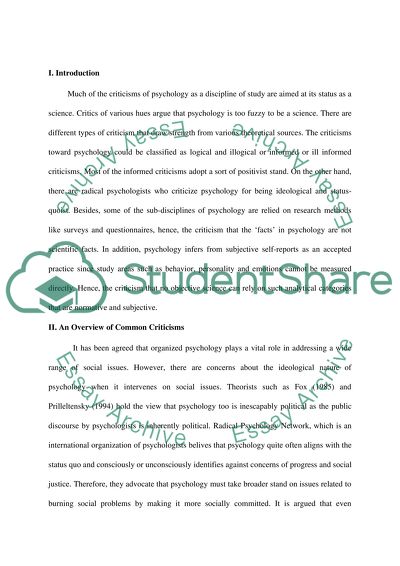Cite this document
(“The Common Criticisms of Psychology Essay Example | Topics and Well Written Essays - 1250 words”, n.d.)
The Common Criticisms of Psychology Essay Example | Topics and Well Written Essays - 1250 words. Retrieved from https://studentshare.org/psychology/1515912-the-common-criticisms-of-psychology
The Common Criticisms of Psychology Essay Example | Topics and Well Written Essays - 1250 words. Retrieved from https://studentshare.org/psychology/1515912-the-common-criticisms-of-psychology
(The Common Criticisms of Psychology Essay Example | Topics and Well Written Essays - 1250 Words)
The Common Criticisms of Psychology Essay Example | Topics and Well Written Essays - 1250 Words. https://studentshare.org/psychology/1515912-the-common-criticisms-of-psychology.
The Common Criticisms of Psychology Essay Example | Topics and Well Written Essays - 1250 Words. https://studentshare.org/psychology/1515912-the-common-criticisms-of-psychology.
“The Common Criticisms of Psychology Essay Example | Topics and Well Written Essays - 1250 Words”, n.d. https://studentshare.org/psychology/1515912-the-common-criticisms-of-psychology.


